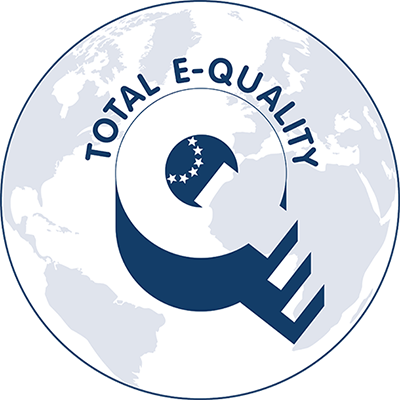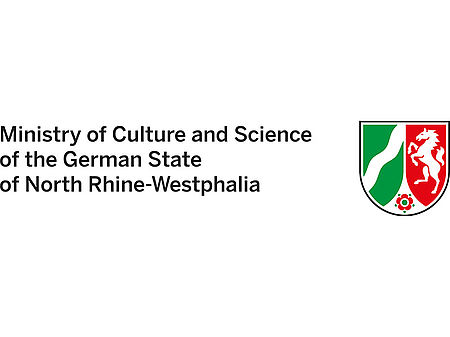Publication fees: what are the different ways of covering article processing charges?
Publication fees, or article processing charges (APCs), can be paid in a number of different ways. One option is for the researcher or their institution to pay these fees themselves, but plenty of other sources of funding are available, though these tend to vary from one institution to the next. We recommend asking your institution to find out what funding options are available in your specific case. The most common scenario is for publication fees to be paid by the institution of the corresponding author, i.e. the author who handles communication with the journal during the submission and review process. Alternatively, publishers may allow the APC to be split between the co-authors. In some cases, the corresponding author may have worked at two institutions or moved to a new institution during preparation of the manuscript; in such cases, the fees are usually paid by the institution at which most of the research work was carried out.
The options presented below primarily apply to APCs, though funding may sometimes also be available to cover other types of fees such as book processing charges (BPCs).
Publication fund
Numerous universities have set up publication funds. These funds can be used for publishing articles in full open access journals. Some requirements may apply, such as a professional quality assurance process on the part of the journal concerned, for example. In addition, the fund may not allow the publication fee to exceed a certain amount.
These funds are typically limited and each university has its own system for deciding how they are distributed. Please check your institution’s website or ask your institution’s open access coordinator to find out whether a publication fund is available and which kinds of publications are eligible.
Reducing publication fees through membership models
To keep within budgetary constraints, institutions often sign membership agreements with individual publishers. These agreements provide a discount on publication fees. The staff responsible for open access at your institution will generally be able to tell you which agreements are in place and which publishers they refer to. You may also be able to find more information on this subject on the website of your institution's library.
Covering costs through Project DEAL agreements
A project group set up by the Alliance of Science Organizations in Germany has signed centrally negotiated contracts with the publishers Wiley and Springer Nature. These include an agreement to allow reading access as well as open access publishing in the majority of these publishers’ subscription journals. This agreement only applies to the publishers’ hybrid journal portfolio; publications in gold open access journals are still subject to article processing charges (APCs), though a 20 percent discount now applies to APCs for many of these journals.
In 2024, a new agreement will come into effect with the publisher Elsevier. This will be subject to different conditions. For example, APCs for some gold open access journals – specifically those from the Cell Press and The Lancet portfolios – will only be eligible for a 15 percent discount. All other journals will be eligible for the 20 percent discount.
A welcome change for authors is the centralised billing system which means they no longer receive an invoice directly from the publisher. Please contact the person responsible for open access at your institution to find out the extent to which your institution is entitled to make use of agreements made under Project DEAL. They should also be able to tell you which journals are covered by the agreement and how any costs incurred are apportioned.
Funding through other transformative agreements
Project DEAL is known as a transformative agreement because it involves reallocating library funds that were originally earmarked for subscription-based reading to cover publication fees. The benefits of such a switch is that publications funded in this way are then available open access, which means they can be read worldwide free of charge. Transformative agreements can be either “Read and Publish” or “Publish and Read”, depending on whether there is more of an emphasis on publishing or reading.
Many libraries negotiate corresponding agreements with additional publishers outside the DEAL environment. The ESAC Transformative Agreement Registry database provides an overview of current agreements. The database can be filtered to show agreements by country, though the entries for consortia do not contain enough information to know whether your own institution is included. To find out, please ask the library whether your institution is part of the agreement and under what conditions funding might be available.
Funding from a research funding body
At many funding bodies, publication fees are reimbursable or can be accounted for and applied for under equipment and resources in the corresponding budget. Such funding is normally subject to certain terms and conditions, however. We recommend clarifying this point before submitting a funding application. The Open Policy Finder database can be a useful starting point to determine the conditions under which publication fees are reimbursed.
See also
Funding: what requirements do funders impose in regard to open access?
Funding from professional societies
In the case of journals that are published by a professional society, the publication fees are often funded through membership fees. Authors generally – or indeed exclusively – come from the ranks of the journal's members and readers. Members of the respective professional society generally receive information on the available offers. In some cases these offers may provide sufficient incentive to join a professional society. To find out more about the available offers, please consult the websites of the professional associations you are interested in.
Combining different sources of funding
It is also possible to cover publication fees by accessing funds from more than one source. For example, it may be possible to reduce a publication fee by drawing on the advantages of an institutional membership combined with a publication fund.
Alternatives
- University presses: Some universities have founded their own publishing house in order to provide publishing services to their members. These services generally cater to monographs and collections (edited volumes). However, some university publishers also offer services for publishing journals. Information on appropriate services can be found on the webpage of the Working Group of University Publishers (German only).
- APC waivers: Some publishers offer full or partial APC waivers to authors from low-income countries. To find out whether you may be eligible for a waiver, please contact the publisher or check their website.
- Diamond open access: Should it prove impossible to pay an APC with funding from the sources mentioned above, another option is to publish your article in open access journals that do not charge an APC. These are known as diamond or platinum open access journals. Currently, the Directory of Open Access Journals lists more than 13,000 such journals, which can be viewed using the “without fees” filter. The “Diamond Open Access Germany” publication issued by Bielefeld University lists corresponding journals that are active in Germany.
Disclaimer
Important note: The information and links provided here do not represent any form of binding legal advice. They are solely intended to provide an initial basis to help get you on the right track. ZB MED – Information Centre for Life Sciences has carefully checked the information included in the list of FAQs. However, we are unable to accept any liability whatsoever for any errors it may contain. Unless indicated otherwise, any statements concerning individual statutory norms or regulations refer to German law (FAQ updated 10/2023).
Contact

Dr. Jasmin Schmitz
Head of Publication Advisory Services
Phone: +49 (0)221 999 892 665
Send mail
Related links
Project DEAL website
DEAL Publish Open Access
ESAC Transformative Agreement Registry
Open Policy Finder (Formerly Sherpa Services)
AG Universitätsverlage
Bruns, A. et. al. (2022). Diamond Open Access Journals Germany (DOAG). Bielefeld University.
on professional societies in the field of life sciences in Germany:
German Life Sciences Association (VBIO)
German Association of Scientific Medical Societies (AWMF) (German only)
These links only provide access to a small selection of German professional societies which are covered by these two umbrella organisations. There are many other professional societies both in Germany and worldwide.




